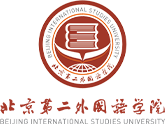
The School of European Studies was established in December 2018 on the basis of the former Western European Language School, the Central European Language School and the Russian Department. It offers master’s degrees in four sub-disciplines, four master's degrees in translation, and 18 undergraduate majors. It has 12 majors in Central and Eastern European languages included in the “Thorough Training” Experiment Program (Guantong Training in Chinese), a vocational training project supported by the Beijing municipal government. It also has research institutions such as the Belarus Research Center, the Peruvian Cultural Research Center, the Polish Research Center, the Hungarian Research Center, the Austrian Research Center, and the Dostoevsky Research Center.
The Russian, German, French and Spanish majors were established in 1964 and were among the early foreign language majors established in the country. Russian is a featured major in Beijing, while German is rated as an important major at the university level. The Portuguese major and the Italian major were founded in 2005 and 2006, respectively. Adhering to the Belt and Road Initiative, BISU has opened new disciplines since 2015 of non-general languages of 12 Central and Eastern European countries including Poland, Czech, Latvia, Hungary, Estonia, Lithuania, Serbia, Romania, Albania, Bulgaria, Slovak and Slovenia, and undergraduates and students from the “Thorough Training” Experiment Program have been enrolled.
The School of European Studies has established friendly exchanges with 53 universities and colleges in 27 countries and regions. Every year, many outstanding BISU students go to these universities and colleges funded by scholarships or sponsorships from the China Scholarship Council (CSC), Beijing “Foreign Training” Project, Beijing “Thorough Training” Experiment Program, Macao Foundation, and the Exchange Scholarship Program. The major cooperative institutions abroad are the following: Moscow University of Russia, Moscow Institute of International Relations, St. Petersburg State University, Kazan Federal University, Minsk State Linguistic University of Belarus, Johannes Gutenberg-Universität Mainz (Mainz University), Essen University, Fachhochschule des Mittelstands (FHM), Université de Paris I, Ecole Supérieure d'Interprètes et de Traducteurs (School of Advanced Translation in Paris), University of Alcalá in Spain, Universidad San Ignacio de Loyola (USIL), Universidad Veracruzana in Mexico, University of Minho in Portugal, University of Coimbra, Macao University of Technology, University for Foreigners in Siena of Italy, Catholic University of the Sacred Heart of Milan, University of Copernicus in Poland, University of Charles in the Czech Republic, University of Technology in Latvia of Roland, Hungary University of Debrecen, University of Tartu of Estonia, University of Vilnius of Lithuania, University of Belgrade of Serbia, and University of Tirana of Albania.
The school currently has 138 faculty members and over 40 foreign experts employed all year round. There are 126 full-time teachers, all of who have studied or worked overseas and 40% of whom are professors or associate professors. The school covers three training levels for graduate students, undergraduates and targeted trainees, with a total of 1,560 students on campus.
Since its founding, the School of European Studies has cultivated large numbers of outstanding talents. With solid language skills and cross-cultural communication skills, they serve in the fields of foreign affairs, economic and trade, journalism, national defense, tourism, education, culture, to name a few. They take positions in the Ministry of Foreign Affairs, China Council for the Promotion of International Trade, Development Research Center of the State Council, Xinhua News Agency, China Central Television (CCTV), China Radio International (CRI), China CAMC Engineering Co., Ltd. (CAMCE), and other ministries, commissions or institutions and enterprises. They have gradually become the backbone of development, well-known scholars and successful entrepreneurs in their working fields and have obtained great acknowledgement from employers for their exceptional language ability, and profound knowledge. The first-time employment rate of each major is 100%.
Inheriting and carrying forward BISU's fine traditions, the School of European Studies will give full play to the advantages of integration to promote the cross-integration and development of multi-disciplinary majors, strengthen inter-national regional research, serve the needs of national strategies and the capital city, and cultivate high-level and application-oriented talents who are multilingual, versatile and with international vision and patriotic commitment.

Links
